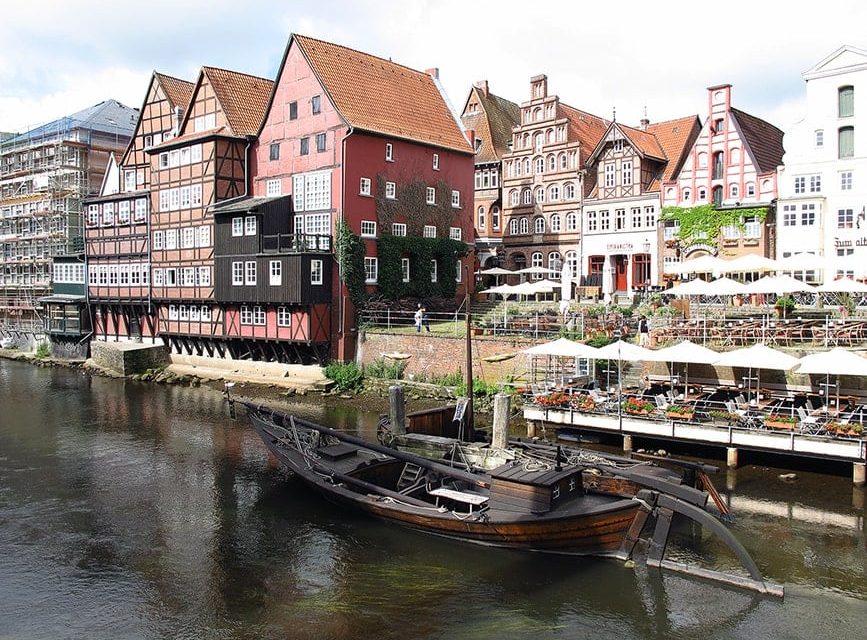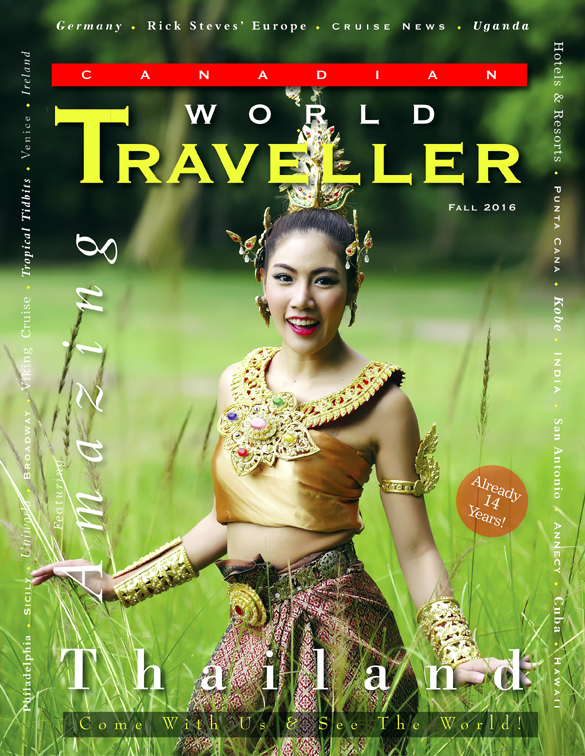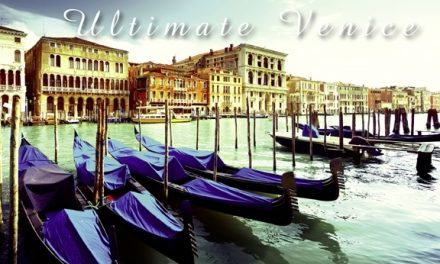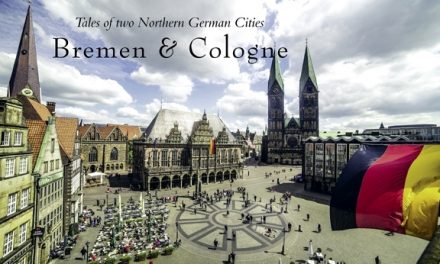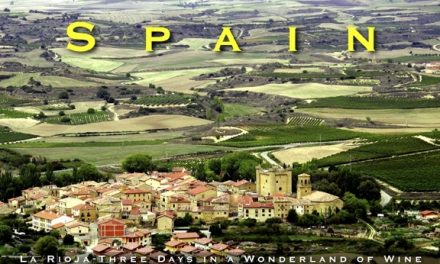Germany
Germany by the Sea!
Article & Photography by Michael Morcos

Located in North Germany, Worpswede is a charming small town tucked away in the countryside. More precisely, it is situated in the legendary “Teufelsmoor” – Devil Moors, northeast of Bremen, near Weyerberg Hill and has been the home to a lively artistic community since the end of the 19th century, with over 130 artists and craftsmen in residence there.
The reason so many artists retreat here is evident when you arrive. The town is very calm and friendly with plenty of old-style houses, beautiful gardens and pretty woods to inspire and motivate the artist’s inner voice. As a visitor, the town offers a myriad of artistic masterpieces and some fun little experiences outside museums as well.
Our first stop was the Wormseed museum, where a well-versed guide led us through the impressive collection and told us many stories behind the pieces of art and a lot of anecdotes of local lore. Among the paintings we were able to see was the famous major work, The “Sommerabend” (summer evening), by Heinrich Vogeler from 1905. It is unfortunate that pictures and words come up short when describing masterpieces…needless to say; it is a beautiful piece of art!
The museum also has a room dedicated to the versatile sculptor, architect and painter Bernhard Hoetger, where his genius is clearly on display!
Aside from the museums, we also enjoyed a guided walking tour through the town which focused on Worpswede’s development from a farming village into an artists’ colony, a long and winding story as fascinating as the art that has been created here! >>>
Later, we were treated to really unique experience – a ride on a “Torfkahn” peat tub over the River Hamme. In the period between the mid-18th century and early 20th century, these oak boats with brown sails were the only means of transportation in the marsh-filled land north-east of the city of Bremen and were originally used to haul peat to the more remote regions, but are now a must-do tourist attraction. This is a wonderful boat ride along the river, and the gentle journey on a sunny day was an excellent start to this laid back and pleasant tour.
With that mellow day behind us, we enjoyed a dinner at the Restaurant Hammehütte Neu Helgoland. Perfectly placed, this restaurant was beside the canal with a view of the beautiful forest countryside. Its was typically German, not only because of the wonderful local beers, delicious sausages and scrumptious deserts on the menu, but also due to the second to none service and ambiance.
Our evening was spent at the historic Hotel Buchenhof, which was a treat, indeed. The very well maintained building with antique furniture is surrounded by lovely forests and gardens.
The hotel is a great base of operations to visit all the museums and galleries in town or even to come back to after a cycling tour into the moor.
Our next stop would be the seaside town of Cuxhaven, and it was a highlight of the trip. With the low tide, we could walk on the ocean floor for a couple of hours with a beautiful warm breeze to accompany us. The soft, sandy soil and a bright sun made it quite the memorable moment. We could have walked for hours along a marked trail and visit other sand bars or, as some others did, take a horse drawn cart along the way. It is clear why this is vacation land for Germans, as it is the only place within the country that meets the Atlantic. Our guide talked for ever about the many sea creatures that live in these waters.
We had a chance to visit the UNESCO World Natural Heritage Wadden Sea Visitor Centre, which is perfectly placed in the Wadden Sea national park itself, right at the entrance to Sahlenburg beach and the Wadden Path to Neuwerk. From here we had a guided tour among the 2000 square metre exhibition, the 100 year old bird warden’s hut, and the bird collection of Heinrich Gätke, founder of the bird observatory on the island of Helgoland, among many other interesting exhibitions. After that, we had a great lunch of herring and other fresh, locally sourced seafood at the visitor centre. Once full, we went on a guided city tour Cuxhaven. Situated on the shores of the North Sea at the mouth of the Elbe River, and including the northernmost point of Lower Saxony, its town districts Duhnen, Döse and Sahlenburg are especially popular vacation spots on the North Sea.
This is a city known for several reasons, including as a port for Germans leaving for the new world and for its very long, sandy coastline with many hotels. It is extremely popular with summer sunbathers and Duhnen also offers access to the Thalassozentrum ahoi complex, a spa and wellness centre – a great way to relax in a well maintained and popular pool complex. After the tour, we enjoyed the Thalassozentrum’s bath and sauna area, very, very much… Please do not forget to bring your swimwear!
Our next destination was Lüneburger Heide – Lüneburg Heath, which is a large area of heath, geest and woodland in the northeastern part of the state of Lower Saxony. A historical anomaly, the dialect of Northern Low Saxon is still widely spoken in the region! Very unique.
The area forms part of the hinterland for the cities of Hamburg, Hanover and Bremen, and is named after the town of Lüneburg. Most of the area is a nature reserve which was shown to us by Ms. Marianne Draeger from Naturparkregion Lüneburger Heide e.V., a certified guide for nature and landscapes. Marianne briefly introduced the barrier-free hiking trail then guided us along the Heidschnuck sheep trail from Niederhaverbeck to Wilsede. She was a wellspring of information about the preservation of the heath and its amazing flora and fauna. We enjoyed a light lunch along the hike, and after the nature walk we found ourselves surrounded by some of the most charming German historic houses I have ever seen, wooden structures with wonderful thatched roofs where we would stop for a wonderful coffee break with cake. To round out the day, a horse-drawn carriage took us from Wilsede back to the hotel…what a relaxing and special to see the countryside in an old fashioned way!
Elbtalaue would offer a whirlwind of activity, starting with a trip to the ‘Niedersächsische Elbtalaue’ Biosphere Reserve in the Elbe valley of Lower Saxony, its nature and landscape is something to see, with its meandering river and oxbow lakes. We also learned that the Lower Saxonian Elbe valley is an ancient cultural hub as well, with traces of human activity dating back to the Bronze Age!
After that, we arrived in Hitzacker, a spa town located on the River Elbe and enjoyed a guided walk around town, and then we got to experience the romantic landscape of the Elbe valley from a different perspective while riding a motorized raft along the river.
After lunch we took a tour through the cultural site of one of the last remaining Rundling villages in Europe and took in the open-air museum in Lübeln and visiting Satemin for an afternoon coffee. The fascinating Rundling villages, a primitive form of circular village, are a curious reminder of the interaction between German rulers and their Slavic subjects in the early Middle Ages. Although still being studied, and under consideration to be granted World Heritage status, most researchers believe they were round to close the village in and offer only one road in from the outside, strengthening the community. Really interesting and unique.
Just before returning home, we had a short visit in the city of Bremen’s old town. This city is known for its link to The “Town Musicians of Bremen” (German: Die Bremer Stadtmusikanten), a fairy tale by the Brothers Grimm about a donkey, a dog, a cat, and a rooster who leave their homes, unite and defeat a den of thieves. Gerhard Marcks sculpted a statue in honor of the Bremen Town Musicians, and it is said that touching the front hooves can make dreams come true!
Needless to say some wishes were made, including one to return to Germany!
www.germany.travel
Click on cover to view published article

